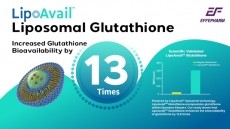Oral probiotics may stymie eczema

In a systematic review published in the journal Cureus, Nova Southeastern University researchers outlined the preventative role of lactobacilli strains, which may modulate the immune system, regulate cytokines and enhance the integrity of the gut barrier.
“Dysfunctional gut barriers and metabolites produced by gut microorganisms can exert profound influences on skin conditions, including AD,” the researchers wrote. “Lactobacilli species are particularly noteworthy for their resilience and stability within the gastrointestinal tract, making these bacteria ideal candidates for probiotic supplementation.”
Increasing interest in probiotics
Although not entirely understood, atopic dermatitis (AD) is a chronic inflammatory condition that causes dry, itchy and inflamed skin. It is the most common inflammatory skin disorder in infants, children and, to a lesser extent, adults, impacting social, emotional and economic circumstances and quality of life for those who suffer from it.
“The interplay between genetic susceptibility, environmental factors and immune dysregulation appears to be chiefly responsible for the clinical manifestations,” the researchers wrote. “One of the most well-studied genetic mutations lies within the FLG gene responsible for the production of the filaggrin protein, an integral component of maintaining a healthy epidermis.”
Approximately 20% to 25% of AD patients have the mutation that can disrupt the most superficial layer of the epidermis. It can also predispose the skin to increased occurrence of infections.
There is growing interest in the use of oral probiotics as preventative care, however. Probiotics such as lactobacilli, Bifidobacterium, lactococci and various yeasts have garnered attention in preventing AD, serving as an alternative to conventional medical solutions that often cause substantial side effects. Still, research studies on the effects of probiotic efficacy at the strain-specific level are limited.
Additional research
Gut microbiome research that explores its influence on the skin has grown in recent years, demonstrating that gut microbial diversity is important to regulate general immunity and the risk of disease. Probiotic supplements modulate gut microbial composition to prevent a host of conditions, such as Helicobacter pylori infections and irritable bowel syndrome.
There are more than 170 Lactobacillus species that live in the human intestine. These species produce antimicrobial substances, antioxidants and antimutagens, prevent pathogens from colonizing and regulate genes associated with inflammation.
“Their survivability and stability in the GI tract, along with their ability to adhere to the intestinal wall, lactobacilli are appropriate candidates for use in probiotic supplements,” the researchers wrote. “Notably, strain-specific research is crucial due to unique variations in efficacy among bacterial strains.”
The review compared the efficacy of L. salivarius, L. acidophilus, L. plantarum, L. reuteri and L. rhamnosus to address AD. L. salivarius and L. plantarum are the most well-researched.
In a study of children newborn to 11 years of age, participants showed improvement with oral L. salivarius, with significant reductions in SCORAD (Scoring Atopic Dermatitis) and itch index scores.
A study showed L. plantarum reduced thymic stromal lymphopoietin (an additional marker in AD-affiliated inflammation) and histamine. It also increased levels of Galectin-9 and filaggrin, which diminish aspects of AD pathogenesis.
The researchers noted that probiotics are considered dietary supplements by the FDA, with data showing that many strains such as Lactobacillus (and those formerly known as Lactobacillus) showing promise in “modifying immune responses and aiding in disease recovery,” although they suggested the science is of varying degrees of robustness. They noted that probiotics are safe and can provide other benefits than traditional methods of addressing symptoms, but that "further research is needed to elucidate their specific mechanisms of action, identify optimal strains and dosages and establish their role as complementary therapies for AD."
Source: Cureus
doi: 10.7759/cureus.64833
“Examining the Efficacy of Five Lactobacillus Species in Treating and Preventing Atopic Dermatitis: A Systemic Literature Review”
Authors: Imina Emokpae et al.















